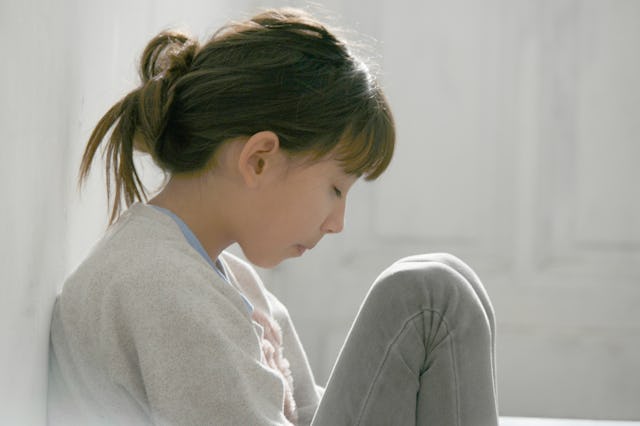Teen Brains Actually Aged Faster Because Of Pandemic Stress
A new study has found that stress and anxiety physically changed adolescent brains.

It’s very apparent that the COVID-19 pandemic has had a significant affect on teens around the world, especially when it comes to their mental health. But now a new study out of Stanford University has determined that the stress of the past 2.5 years was enough to change the physical form of kids’ brains. Specifically, it’s made their brains age faster and left them susceptible to mental health concerns like depression and anxiety.
The study, which was published this week in the journal Biological Psychiatry: Global Open Science, began as an experiment that tracked gender and depression in teens. But when the pandemic hit, the researchers pivoted to explore what MRI scans could reveal about how adolescents’ brains were weathering the stress of what was happening in the world around them.
The study started in 2014, when researchers scanning the brains fo 220 kids ages 9 to 13. After the pandemic hit, the kids’ brains stopped changing as predicted, and began to age faster. The amygdala — the brain’s center for fear and stress — grew bigger and faster, while the cortex — the brain’s center for executive functioning — shrank.
The kids’ brain development — in just 10 months of living with the pandemic — mirror that of people who experience trauma as they grow, like those living in war zones, abusive homes, or extreme poverty.
“The pandemic has not been kind to adolescent mental health,” Ian Gotlib, a psychology professor at Stanford University, told CNN in an interview. “These effects were interesting and happened pretty quickly.
“We thought there might be effects similar to what you would find with early adversity; we just didn’t realize how strong they’d be,” he told The Washington Post.
He stressed that the physical findings of his team mirrored the findings of scientists and doctors who have found teens are suffering more acutely and more often from depression and anxiety since the pandemic started.
“This was just a one-year shutdown, so we didn’t know that the effects on the brain would be this pronounced after that short a period of stress,” he added. “It tracks with the mental health difficulties that we’re seeing.”
This is far from the first study to find that kids and teens suffered because of the pandemic. One recent study found that teen trips to the emergency room for eating disorders has doubled since the 2020, while another found that 26% of teens are grappling with suicidal thoughts. At the same time, screen time has gone up 20% and they are more isolated from friends than ever before.
They are struggling academically, trying to find a new normal, and dealing with all of the other normal problems that teens face as they come of age. At the same time, teens have been dealing with getting sick with COVID, long COVID, and losing family members to COVID. In other words: it has been a lot for them to deal with.
What this study doesn’t pinpoint is whether these brain changes are permanent or whether they will affect this generation of kids longterm. Their brains could normalize, Gotlib explained, or they could suffer the long-term effects of a more rapidly-aging brain, which could include issues a wide range of issues with their mental health. In addition, these brain changes have been linked to issues like addiction, cancer, diabetes, and heart disease.
The kids will have their next MRI in two years, and researchers will learn more about how teen’s brains will continue to respond and change as they grow.
Gotlib stressed in his CNN interview that the main takeaway for parents right now is to focus on making sure that they are paying attention to their teen and taking the necessary steps to care for their mental health in the moment.
“Be sure that your adolescent or your teen is getting any help that he or she, that they, might need if they’re experiencing symptoms of depression, anxiety,” he said.
He was more blunt in his Washington Post interview: “Just because the shutdown ended doesn’t mean we’re fine,” he said.
This article was originally published on